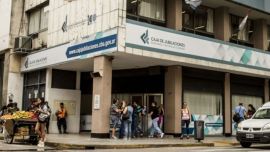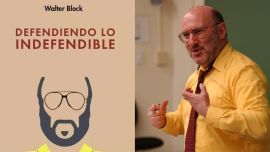No less than 46 of the 52 weeks in the year just ending were devoted to the build-up to the midterms but, against general expectations, 2021 was also more of a pandemic year than 2020, almost trebling its death-toll. The midterm results defied economic determinism with a possibly record growth rate being seen by two-thirds of the electorate as merely a rebound while backlash centred on government handling of the pandemic (especially the endless school closures) and the ‘Olivosgate’ game-changer of official partying at the height of quarantine hitting presidential credibility irreversibly. Peronism’s first defeat when united and first loss of a Senate majority since 1983 is even more historic for breaking a vicious circle of an increasingly poor country becoming increasingly populist as poverty loses its political dividends. The presidentially denied result leaves the opposition with too many candidates for 2023 and the government with too few (to be picked by primary voters, not Cristina Fernández de Kirchner).
In pandemic terms, 2021 was neatly bisected by the door being opened to United States vaccines in midyear after Sputnik shortfalls and the ‘VIP vaccine’ queue-jumping scandal clouded the first half – the death toll hit six digits a few days later but then slowed with half the population vaccinated by early October.
With presidential popularity at half of early pandemic levels, the state-of-the-nation speech in March set the government on the wrong track with its two main themes of flagging judicial reform and blaming the problems on his predecessor Mauricio Macri’s debts, the latter becoming almost the exclusive focus of all presidential international contacts throughout the year – which did not save Argentina from being downgraded to “standalone” status before midyear but US$4.3 billion worth of special drawing rights salvaged dwindling reserves. Meanwhile Vice-President Fernández de Kirchner piled up acquittals without judicial reform.
Although rhetorically aggressive, the state limited its intervention to nationalising the Hidrovía Paraná-Paraguay waterway, the absurd beef export ban and the new Domestic Trade Secretary Roberto Feletti’s price controls. Crime (only played up politically around the midterms) remained a constant problem, femicide included – among many others crossing the calendar boundary.
---
When Charles Dickens wrote his famous opening lines to A Tale of Two Cities in 1859: “It was the best of times, it was the worst of times … it was the spring of hope, it was the winter of despair … in short, the period was so far like the present period …,” he might as well have been prefacing a new novel, 'A Tale of Two Countries,' forecasting Argentina in the year 2022. Even if the Dickensian superlatives of “the best of times” and “the worst of times” might need to be toned down to their comparative forms, there seem to be equally plausible scenarios for expecting things to take a turn for the better or for the worse in the year beginning yesterday.
Some of this ambiguity was contained in the closing weeks of the recently departed year. Progress against the coronavirus pandemic was so constant in the second half of last year, both in terms of accelerated vaccinations and shrinking data, that some government leaders even saw fit to engage in some pre-electoral, post-pandemic talk but the Omicron variant entering the global vocabulary just 10 days after the midterms has added yet another turn of the screw. The defeat of the 2022 Budget last month seemed to point to an increasingly precarious governability in the new Congress which had just been sworn in – this branch of government seems especially hard to predict. As does the evolution of the party system so basic to parliamentary activity, with the jury still out as to whether the government or the opposition coalitions are more vulnerable to fragmentation. The economy could continue its recovery from lockdown at a slower pace (aided by global recovery) or the repressed inflation of the last two years could explode. Such ambiguities could be repeated at almost every level – it seems equally possible that Argentina could crash out early at the group stage in Qatar next December or end the year as World Cup champions.
One major difference between 2021 and 2022 – at least there are no elections this year, thus leaving the government less conditioned when defining its agenda but also the citizenry freer to make their own New Year’s resolutions. And perhaps, after so much pandemic, we all need to dream of a better future ahead.





















Comments